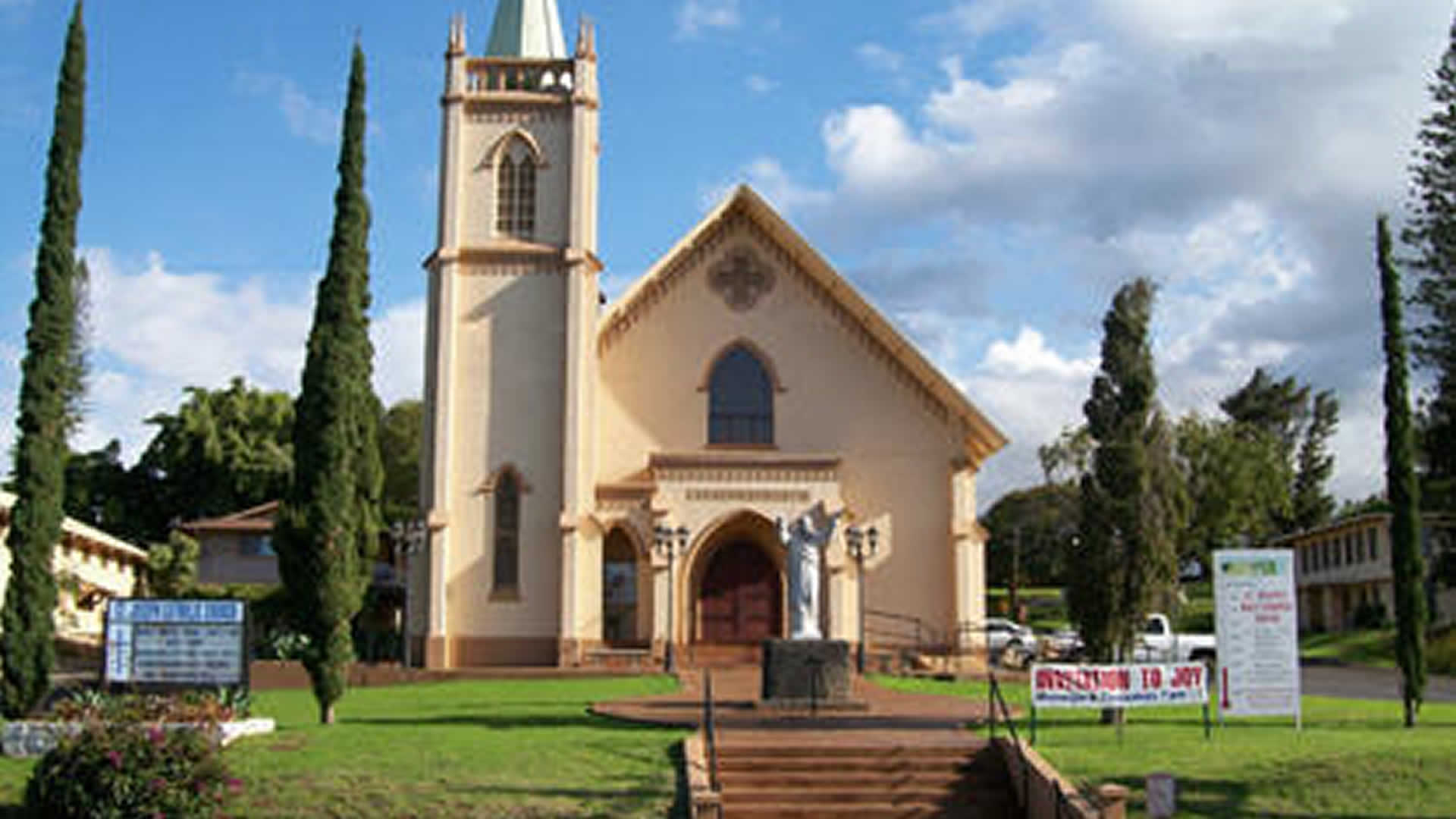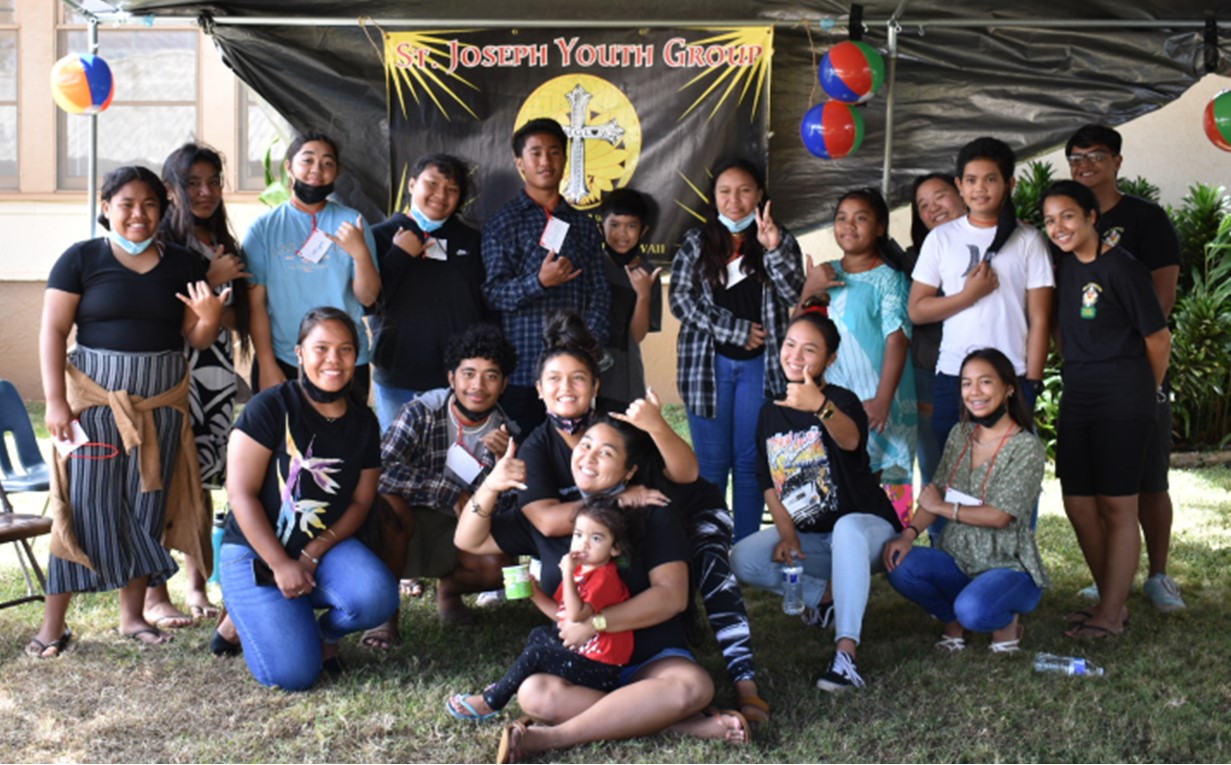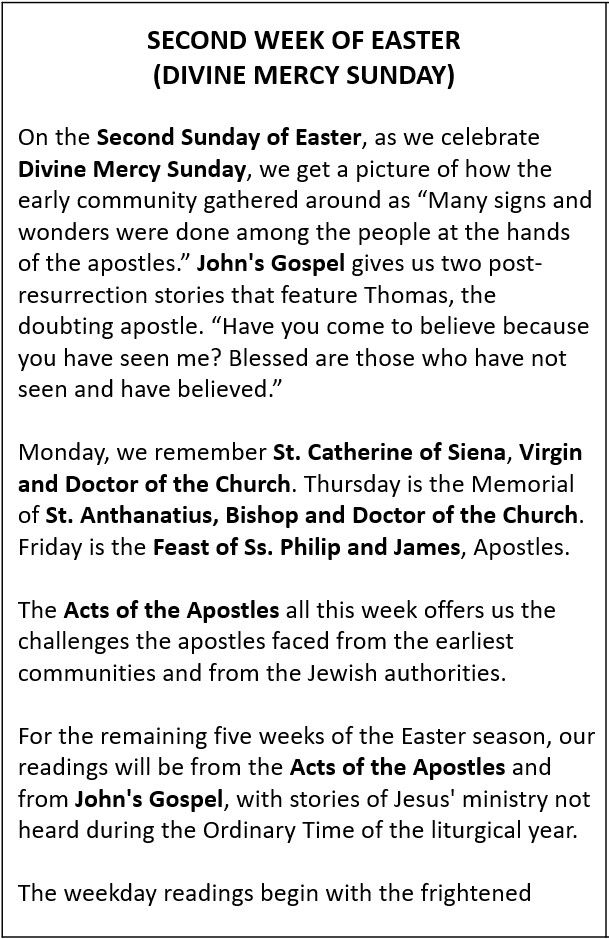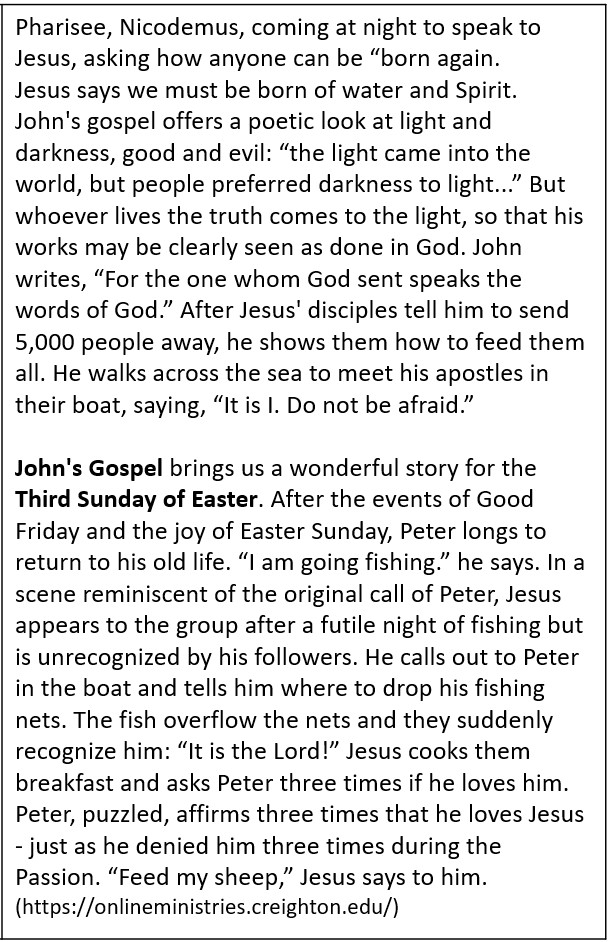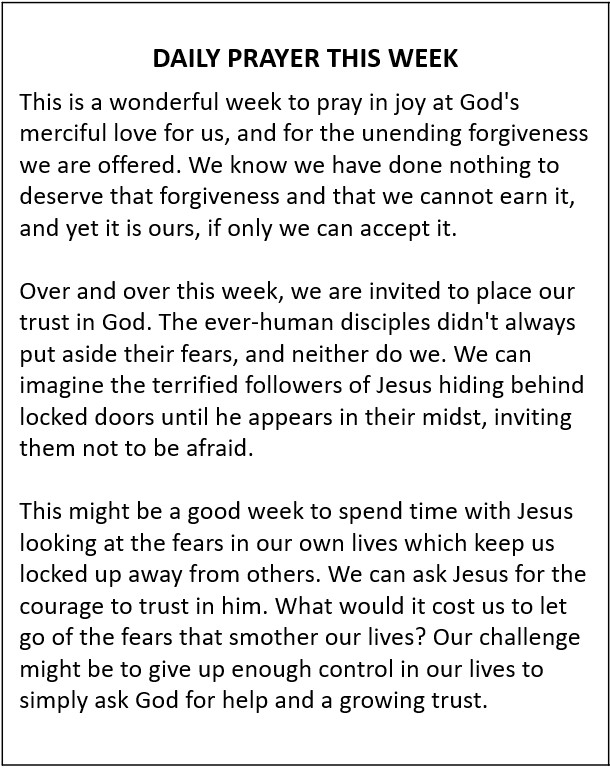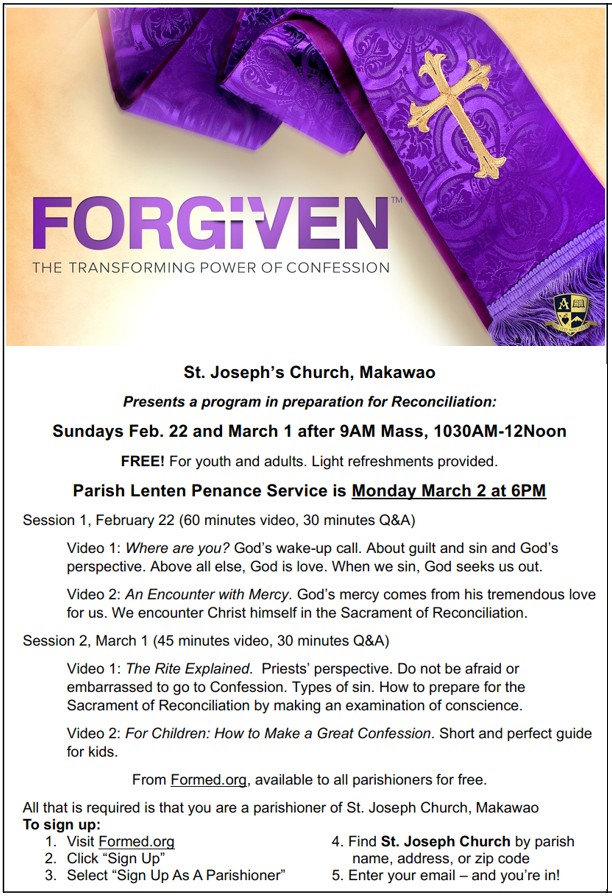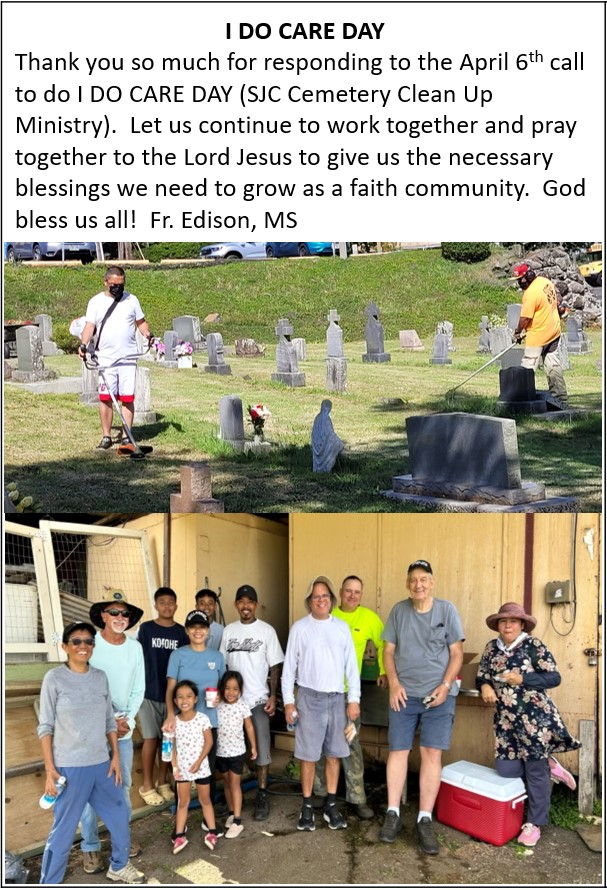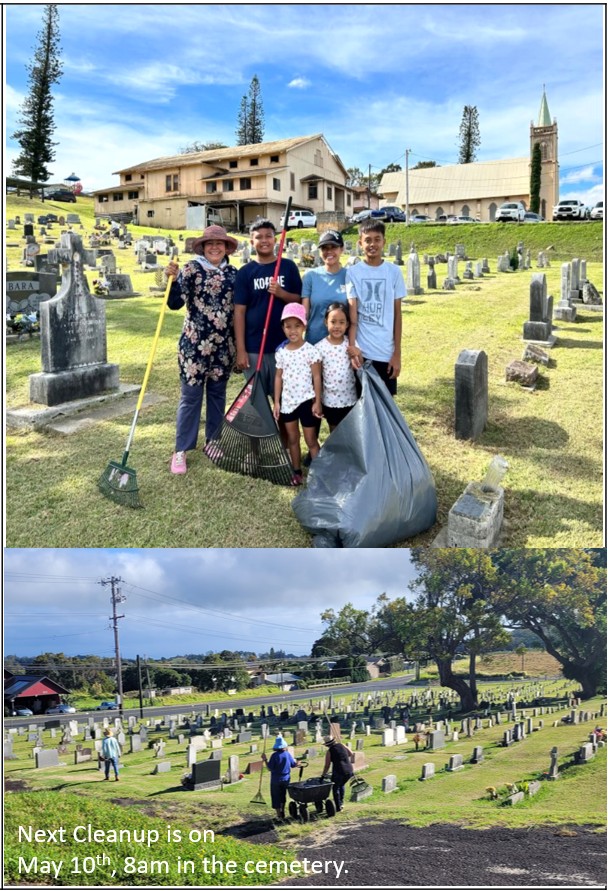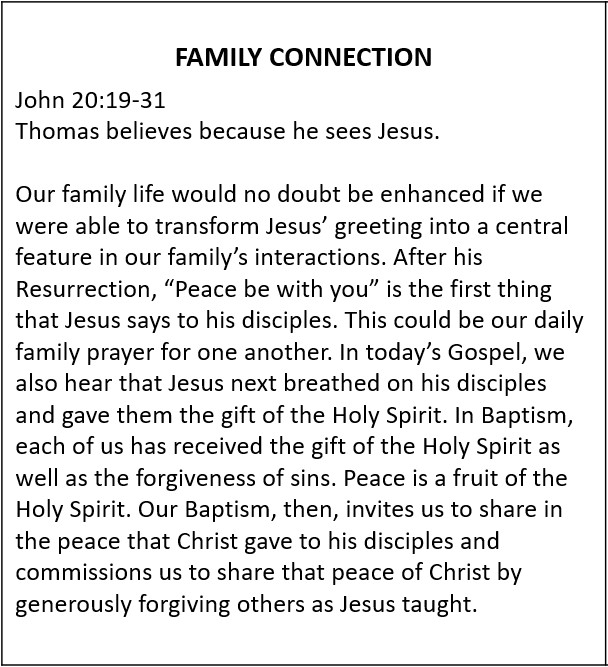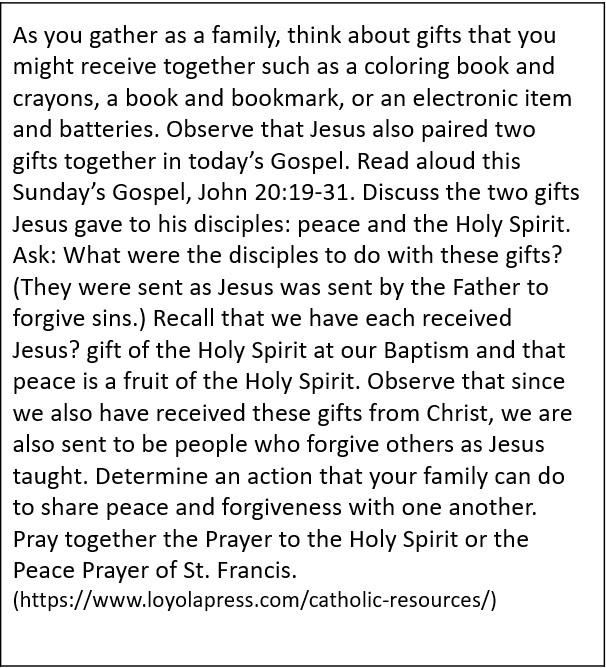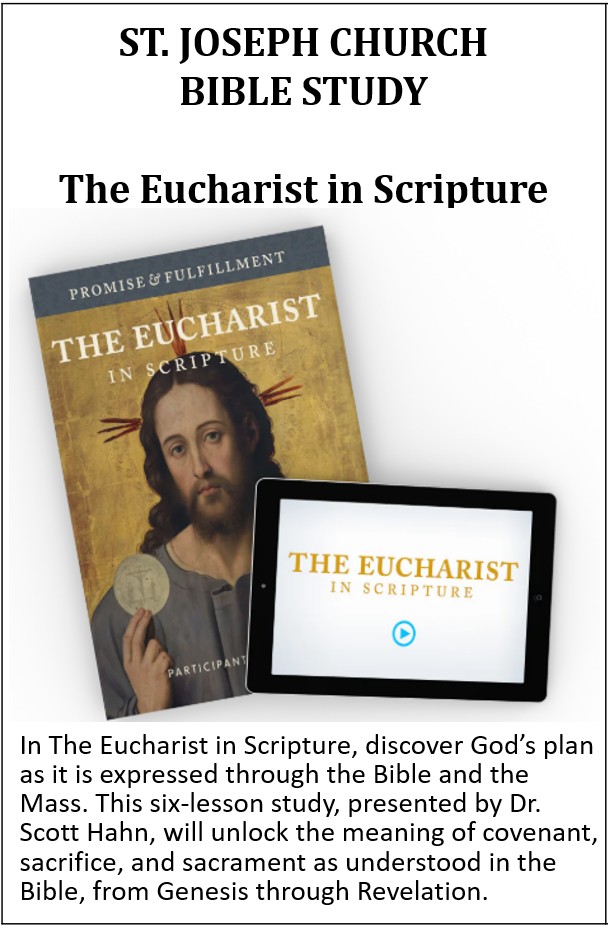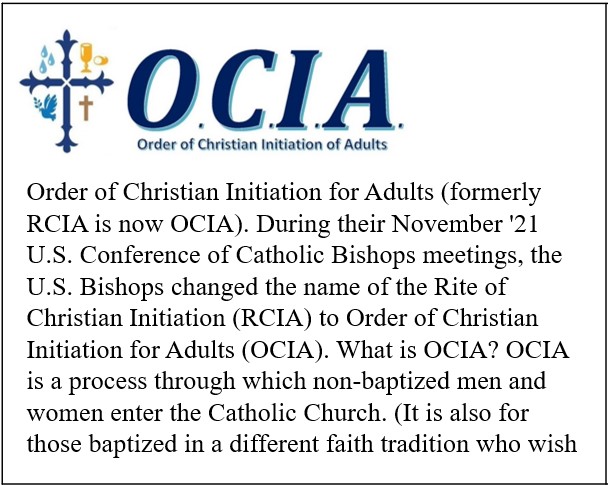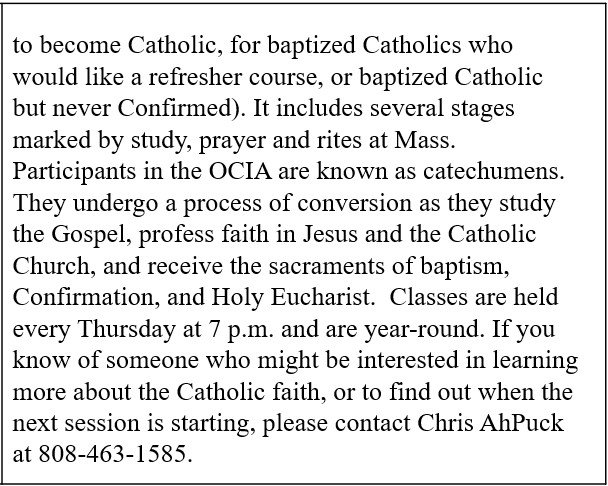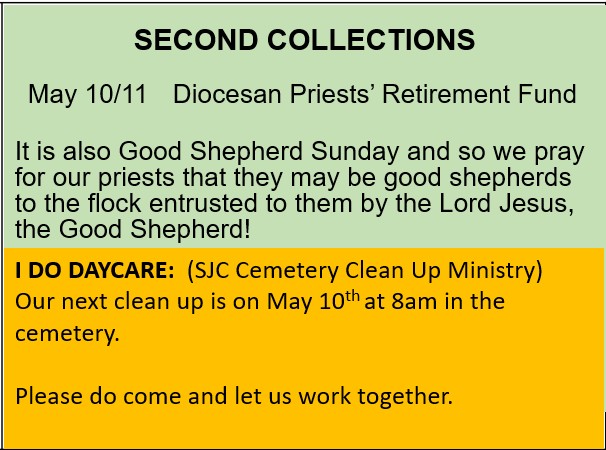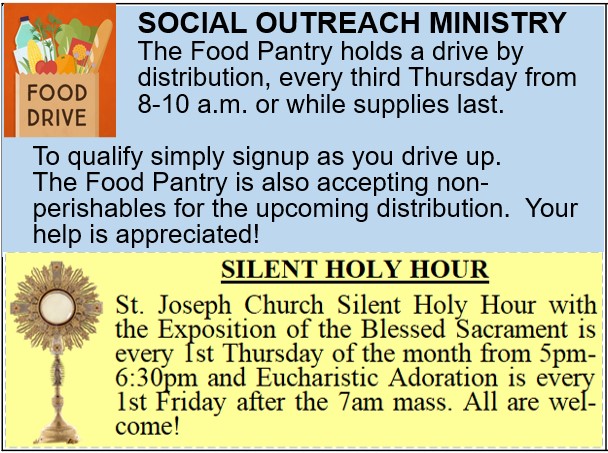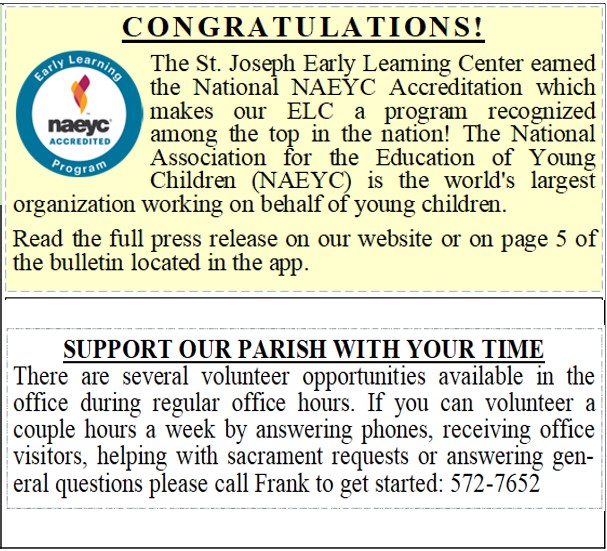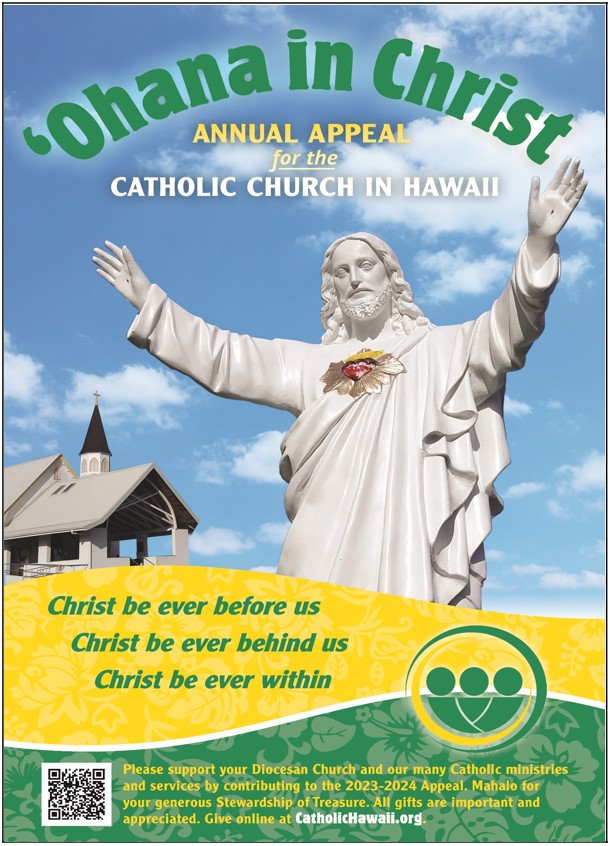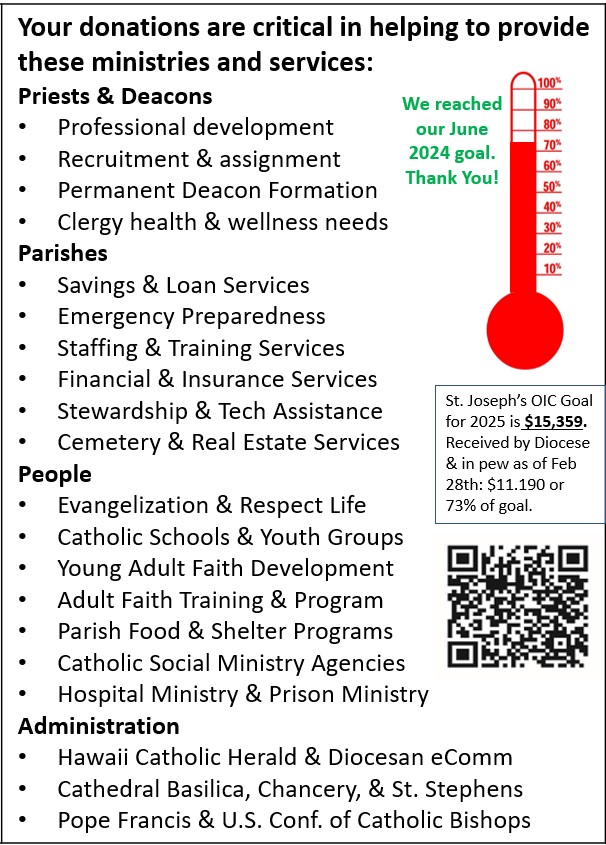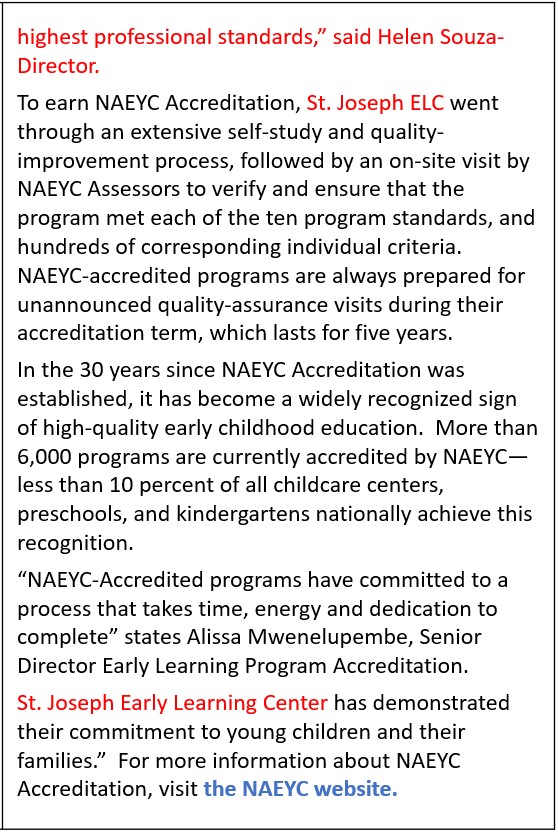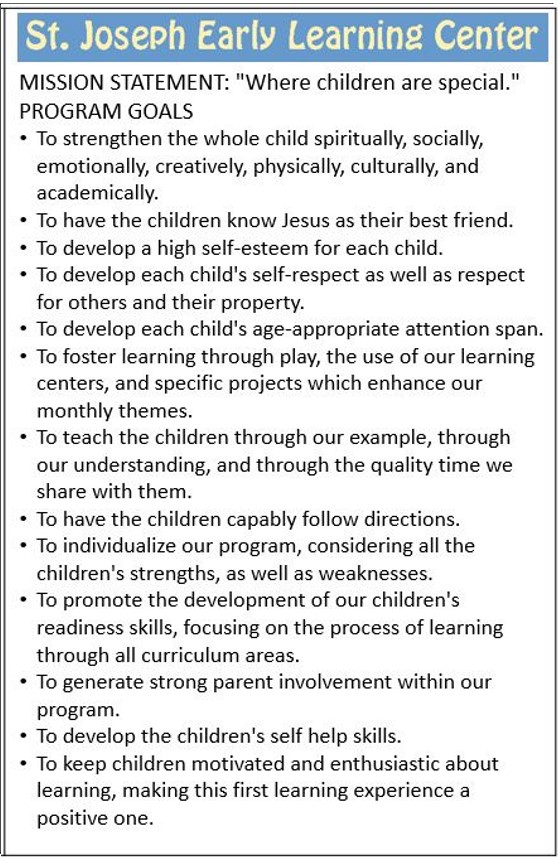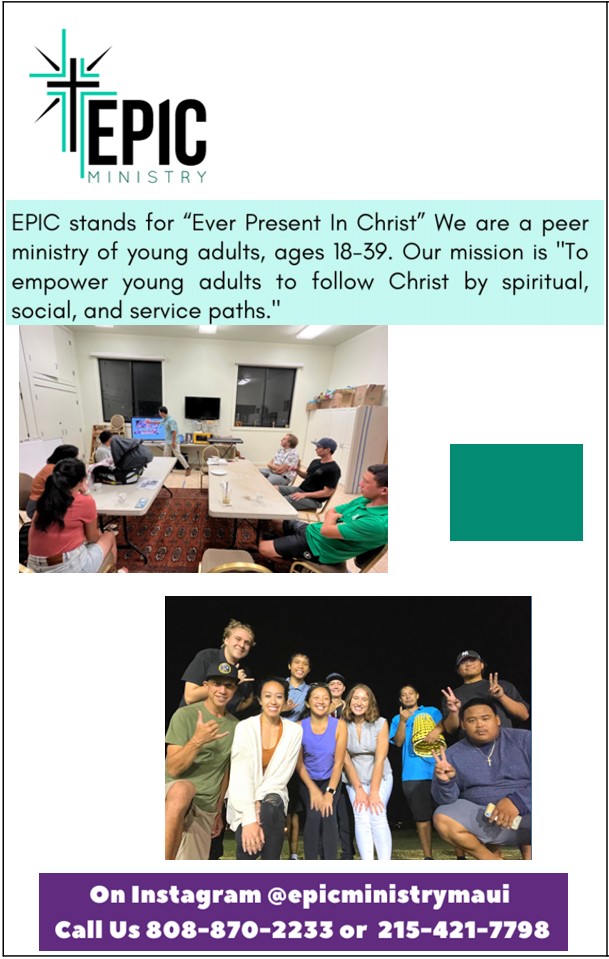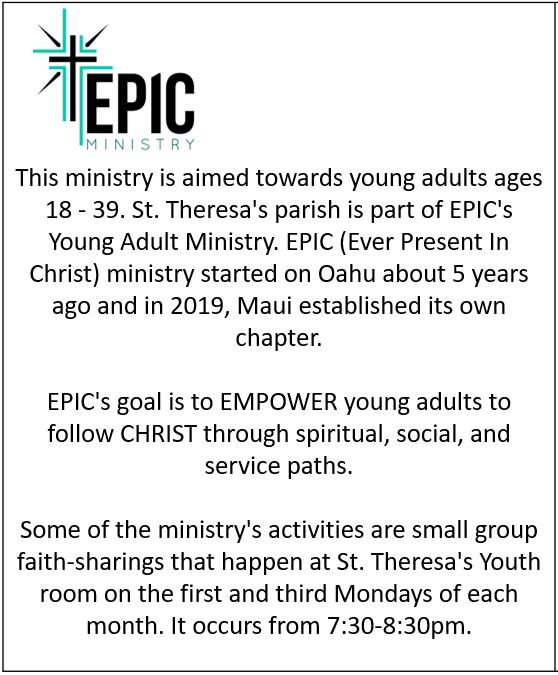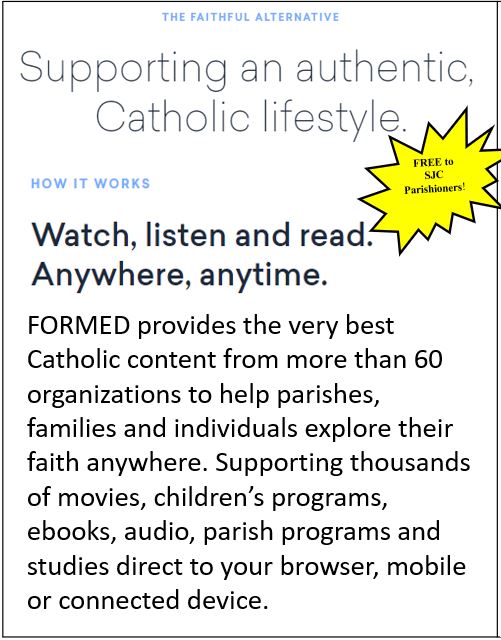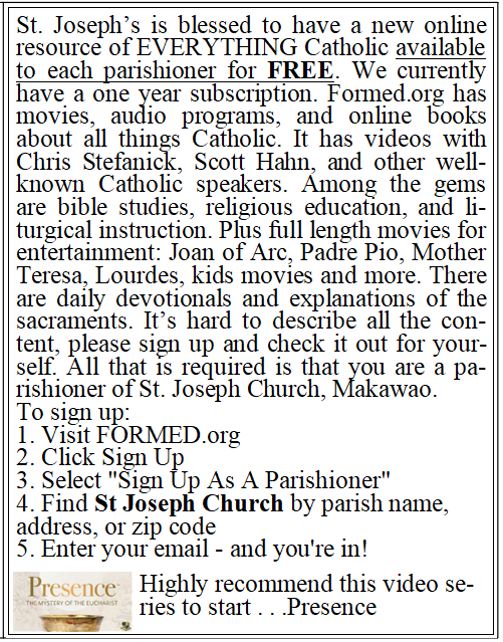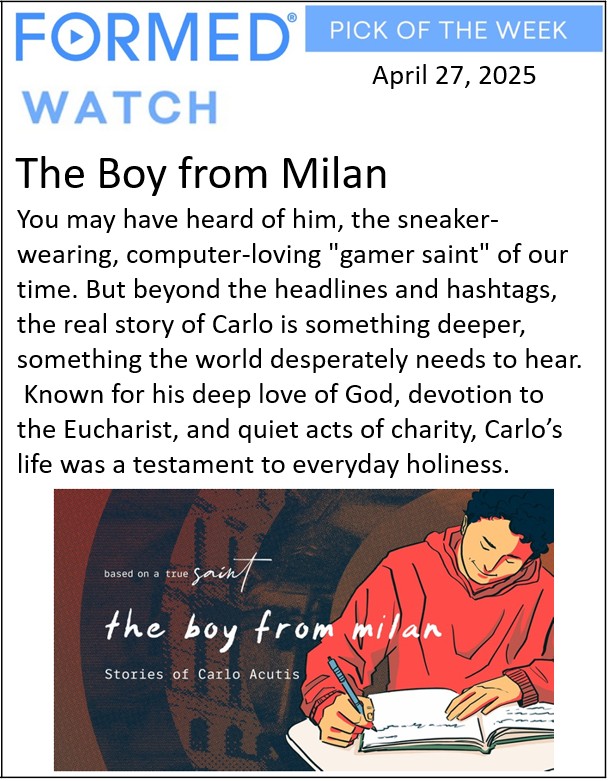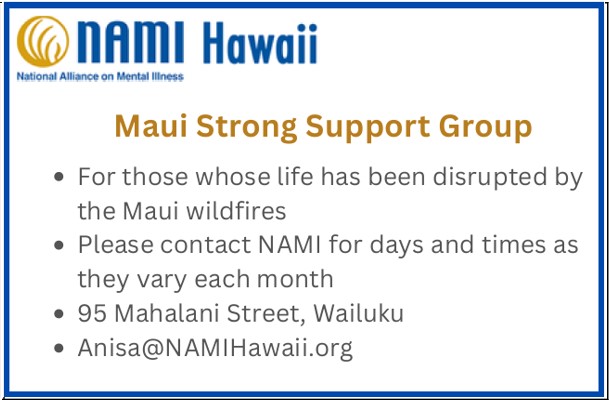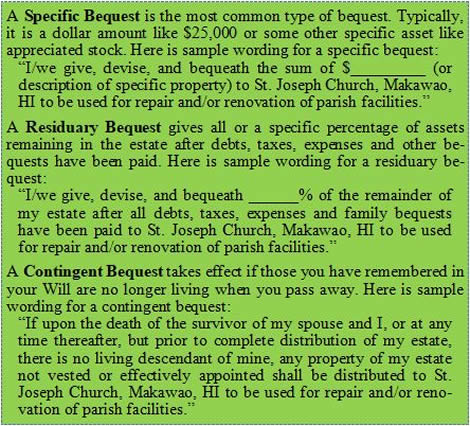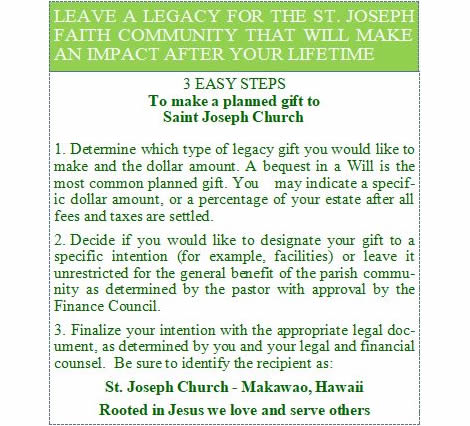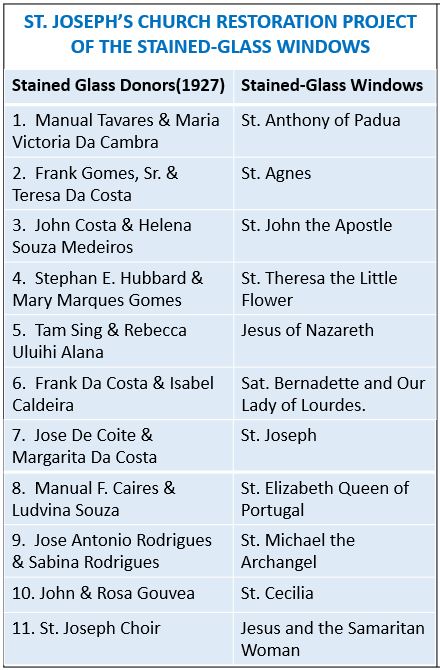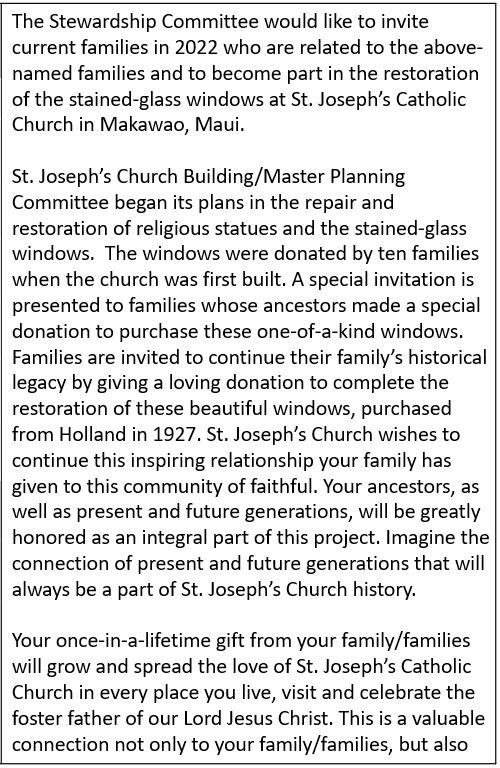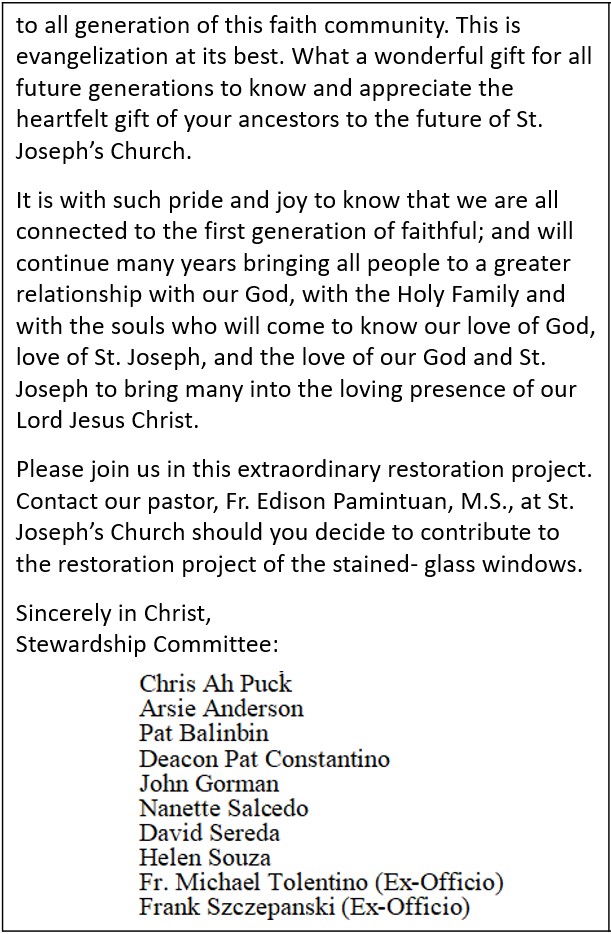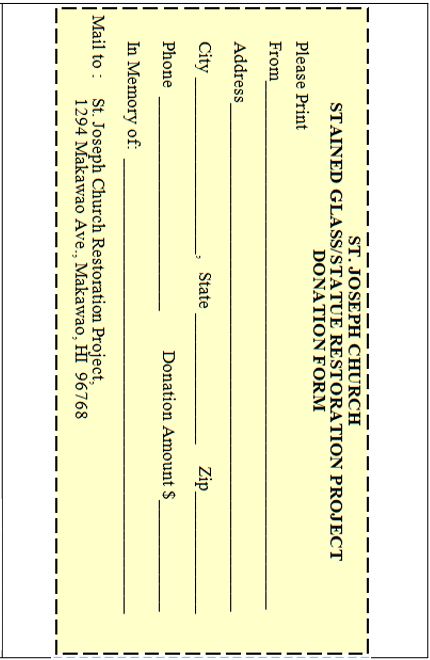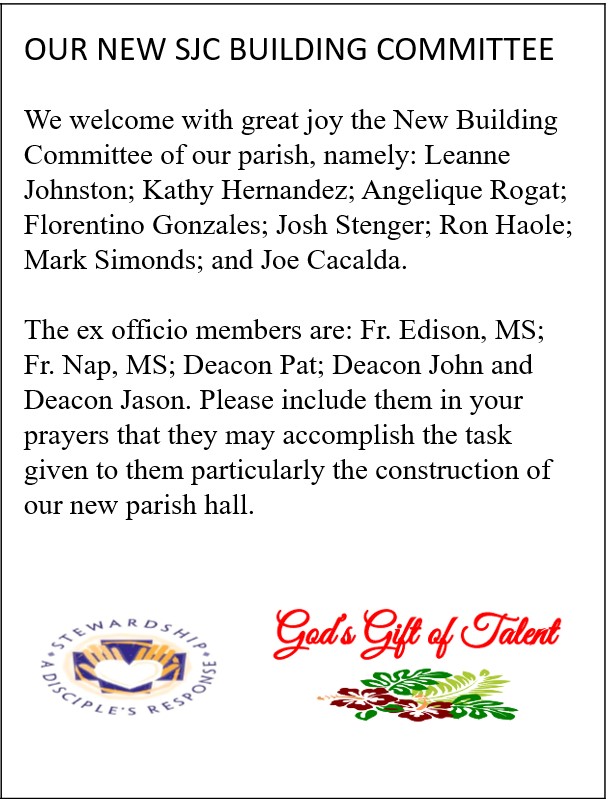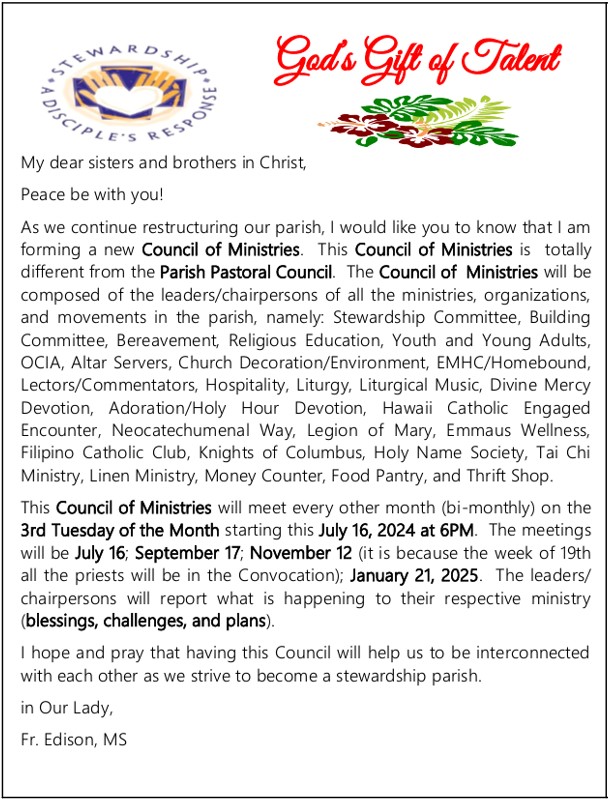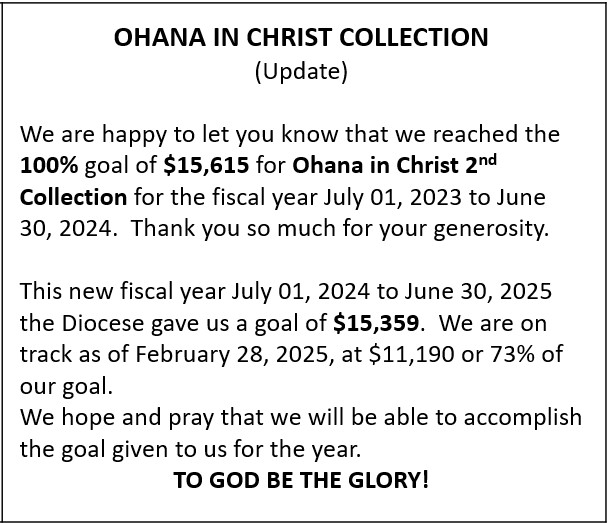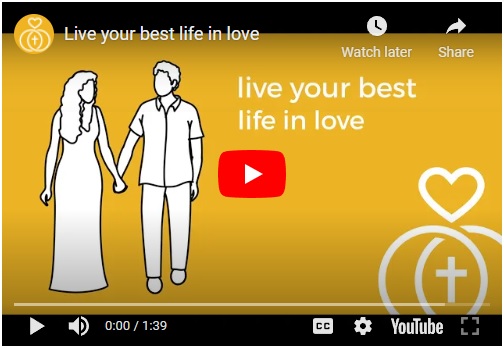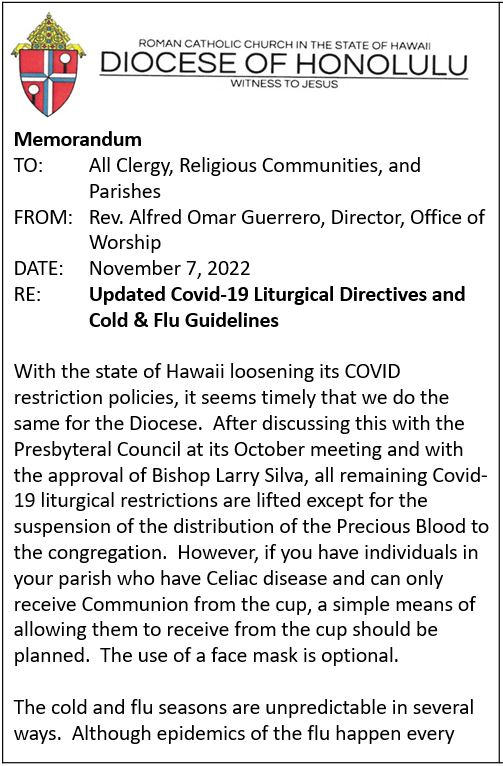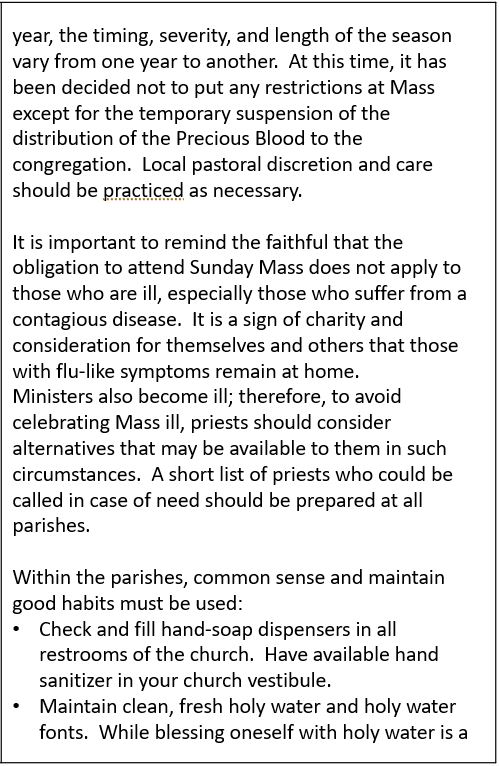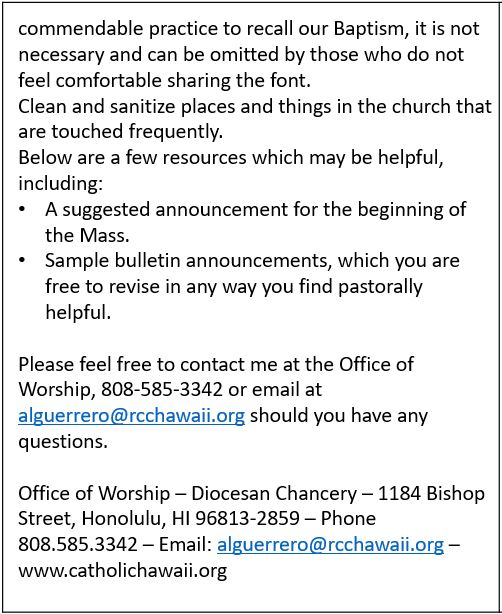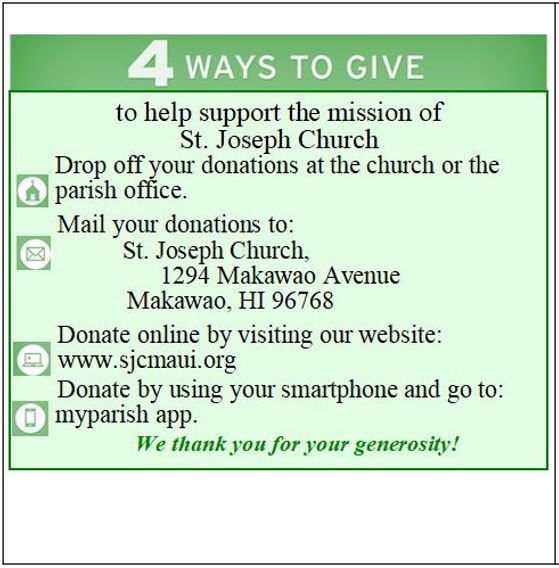1ST SUNDAY OF LENT
February 22, 2026
REFLECTION ON TODAY'S READING
Your Word is Bread for the Journey
Begin this first Sunday of Lent by allowing yourself to be nourished by the Gospel of the day.
“Man shall not live by bread alone, but by every word that proceeds from the mouth of God.” (Mt 4:4)
Remember that Jesus teaches you that true life is not limited to material needs, but finds fulfillment in communion with God.
Let His Word, His will, His teaching, and His presence become spiritual nourishment that gives meaning, strength, and hope to your life.
Offer the Lord your desire to live by His Word, asking that it enlighten and guide your daily decisions. Pray the prayer of offering for this intention.
Under the directive from the Diocese of Honolulu
St. Joseph Church has set up an egiving program to allow parishioners and guests an easier way to give. It will also allow the donors to: 1. Give from anywhere using a computer, tablet, or smartphone. 2. No need to find a check or stop by the ATM. 3. Use your Checking/Savings Account or your Debit/Credit Card. 4. Schedule gifts to occur automatically. Click on the give now link or on your phone using my parish app. “All must give as they are able, according to the blessings given to them by the Lord your God.” Deuteronomy 16:17
Online donations may be made at any time from the comfort of your own home or any place with internet access. Online donations are credited to your tax statement for the end of the year (except when made anonymously)and you can change your account preferences and donation amounts at any time.
Saint Joseph Church Makawao - Bulletin
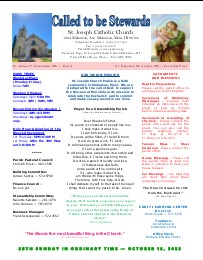





The Gospel Reading, Matthew 4:1-11
Jesus fasts for 40 days in the desert and is tempted by the devil.
In each of the three Synoptic Gospels (Mark, Matthew, and Luke), after Jesus’ baptism by John, Jesus is reported to have gone to the desert to fast and pray for 40 days. In each case, while in the desert, Jesus is tempted by the devil.
Matthew and Luke give more detail than Mark does, but each one tells how the devil tempts Jesus in the desert. In Matthew, as in Luke, the devil presents three temptations to Jesus. The devil tempts Jesus to use his power to appease his hunger; he tempts Jesus to put God’s promise of protection to the test; and he offers Jesus all of the kingdoms of the world if Jesus will worship the devil. In each case, Jesus resists the temptation, rebuking the devil with words from Scripture.
The account of Jesus’ temptation in the desert is filled with allusions and parallels to the Old Testament, including the story of the people of Israel. The Israelites spent 40 years wandering in the desert in Exodus, for example, and Jesus spends 40 days in the desert. As the Israelites were tempted during the Exodus, so too is Jesus tempted.
Each temptation offers insight into both God and the human condition. Jesus’ rejection of the temptations shows that he will not put God to the test. Grounding himself on the word and authority of Scripture, Jesus rebukes the devil, confident in God’s protection and faithfulness.
As we start our journey through Lent, our Sunday readings call us to adopt the same confidence that Jesus had in the face of temptation: God’s word alone will suffice; God’s promise of protection can be trusted; God alone is God.
—
(https://www.loyolapress.com/catholic-resources/liturgical-year/sunday-connection )
.
A STEWARDSHIP MOMENT
In today’s Gospel reading we listen to the confrontation between Jesus and the devil, who thought he might tempt Jesus to forget who he was and commit a grievous sin when he was most vulnerable. Jesus had just spent 40 days and nights out in the desert, alone, away from civilization. He was hungry, thirsty, and tired. If there ever was a time to tempt Jesus, that was it. Temptations to sin come at us every day, from many directions and in many different forms. When the temptation to sin tries to overcome us, how do we react? Do we consciously remind ourselves that we are followers of Christ? Is there a time this week when you have needed to confront a temptation to sin? What lessons did you take away from the experience?
—— (https://catholicstewardship.com/)
EUCHARISTIC ADORATION OF THE BLESSED SACRAMENT
First Thursday of Every Month. Come anytime between 5-6:30 pm.. All are Welcome!
THRIFT SHOP HOURS OF OPERATION
Every Tuesday from 8am - 12 noon, and every 1st and 3rd Saturday of the month, from 8am-12 noon. Donation drop offs are welcome and greatly appreciated every Monday from 8 - 12 noon, or during normal thrift shop hours.








